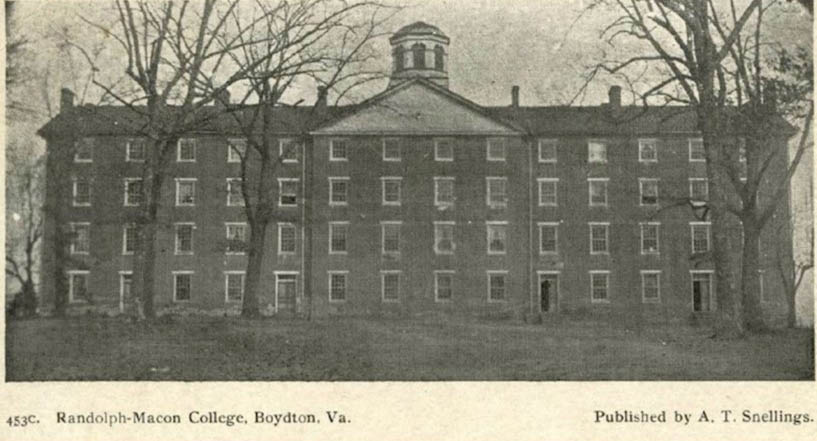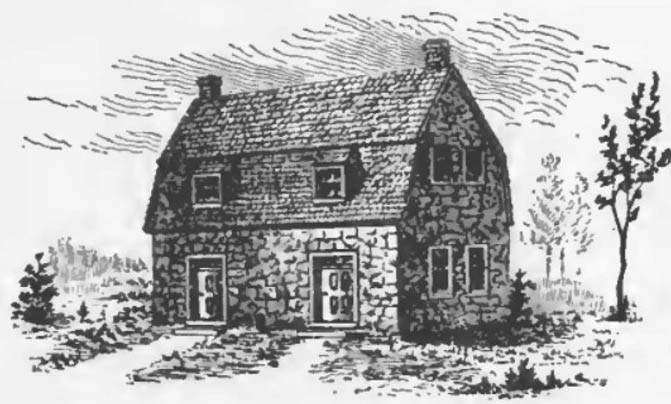An Introduction by the Rev. Dr. John “Jack” T. Martin
The Virginia Conference Historical Society of the United Methodist Church is a non-stock corporation made up of all the ministers and members of the churches of the Virginia Annual Conference whose purpose “is to collect, preserve and disseminate information and to collect and preserve materials and property related to the history of Methodism in Virginia and elsewhere.” (Articles of Incorporation, page 1). The Board of Trustees and officers of the Historical Society are keenly interested in the history and heritage of the United Methodist Church in Virginia as it continues to influence the present day.
Ebenezer Academy Memorial

Ours is a vibrant history of the pioneers of Methodism in America, who literally rode out in faith to the wilderness places. It is the story of the first property purchased in Virginia to establish The Old Stone Church in Leesburg and the preservation of the site where the first American born itinerant minister William Watters and his wife are buried in McLean. This is the story of courageous circuit riders, some being immigrants to America and others native born, following closely on the heels of the early settlers during Revolutionary times to minister and to establish churches. The so-called “Cradle of Methodism” known today as the Brunswick Circuit was once the largest circuit and still holds the claim for being the longest continuing circuit in American Methodism, with those several churches still bearing the name “Brunswick” proud of their heritage, still proclaiming the wonders to God’s grace (and still claiming to be the originators of the now famous Brunswick stew).

Randolph-Macon College, Boydton, Va.
Focusing on that region, the Old Brunswick Circuit Foundation is actively working to preserve and interpret sites, such sites as the Ebenezer Academy, claimed to be the first Methodist school in America near Warfield. Just south of Lawrenceville we find the home of Irish-born Rev. Edward Dromgoole, which is a fairly well preserved two-story structure, amazing in its architectural detail, which stands as the only circuit rider home still in existence within the Virginia Conference and a place where the Rev. Francis Asbury often stayed when itinerating in the area. Also important is the original site of Randolph-Macon College in Boydton, where a number of future college presidents received their education. When Randolph-Macon moved to Ashland, the Boydton Institute was established on the old campus and provided education over a 50-year period to African Americans, some of whom became well-known civil rights leaders in the struggle against racism.
Even as the Conference Historical Society cares for these important properties, it also oversees the publication of Heritage, a quarterly booklet edited by Myra Lindsey that tells in every issue the intriguing stories of how God has inspired the People Called Methodist to “make disciples” across the generations. Perhaps the greatest resource of the Society is the Conference Archives, located in the United Methodist Center in Glen Allen. We are blessed to have Stephanie Davis as a part-time archivist, supported in part by the Patti Russell Endowment, which was established in memory of Patti’s many years as volunteer archivist to help fund this important position. Stephanie would welcome your visit to the Archives to view the treasures within the movable storage walls that house them.The Society is committed to preserving significant historical sites and caring for important primary resources, while making visits to these sites user friendly through interpretive information available at each location. We even plan Conference-wide field trips to visit sites, such as the recent sea journey to Tangier for a presentation by historical interpreter the Rev. Dr. Gary Ziegler portraying Joshua Thomas, Parson to the Islands, during and after the Revolutionary War. [Note: the trip was curtailed by heavy seas and the captain’s decision to return to Reedville, VA, where the reenactment took place.]
To learn more about how the Virginia Conference Historical Society serves to resource local churches, please view our entire website. Hopefully you will be inspired to engage the effort to discover and share your congregation’s history with a new generation!

